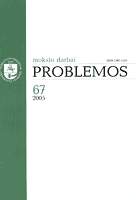EKOLOGINĖ ETIKA: KILMĖ, PRINCIPAI, TAIKYMAS
ECOLOGICAL ETICS: ORIGINS, PRINCIPLES, AND APPLICATIONS
Author(s): Česlovas KalendaSubject(s): Philosophy
Published by: Vilniaus Universiteto Leidykla
Keywords: moral relationship with nature; levels of moral relations; ethics of earth; bioethics; prudentia; responsibility; cautiousness
Summary/Abstract: Man s moral relationship with nature emerged in the archaic times yet in the course of civilisation it was pushed into the margins of culture providing the status of immoral space to natural reality. Under influence of romantic naturalism, the 19th c. scholars rehabilitated nature as an esteemable object. The new ethics of 20th c. included into the sphere of moral operation all non-human beings, even nature in total. Compared to the stereotypes of traditional ethics, the need to regulate natural environment in terms of moral principles determined the formation of imperatives on another (meso or macro) scale. The ecological ethics developed into a branch of applied ethics called up to investigate into the principles of human behaviour essential for the preservation of species, including Homo sapiens, and of the conditions of their existence (biosphere). The implementation of the above-mentioned principles implies the mankind’s becoming a communicating participatory community. Such type of community is formed by states joining world or international organisations, by signing conventions or assuming environmental obligations that eventually turn into the goals of organisation’s operation, the standards of civil behaviour, and practical actions.
Journal: Problemos
- Issue Year: 2005
- Issue No: 68
- Page Range: 135-147
- Page Count: 13
- Language: Lithuanian

